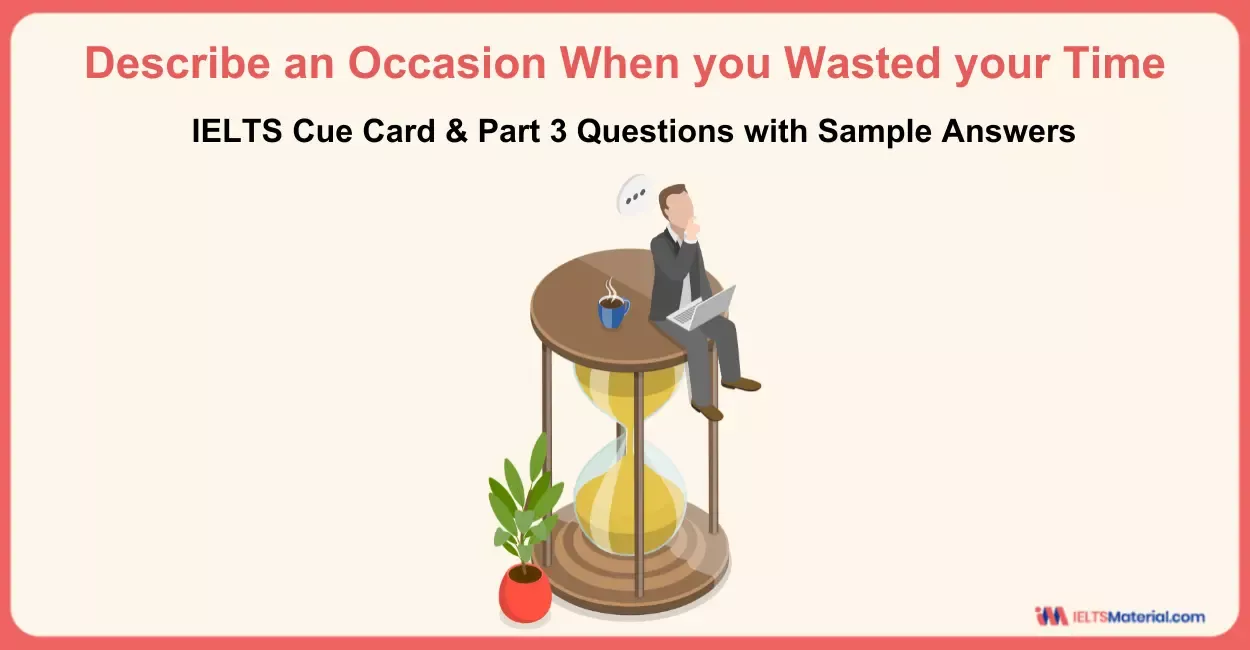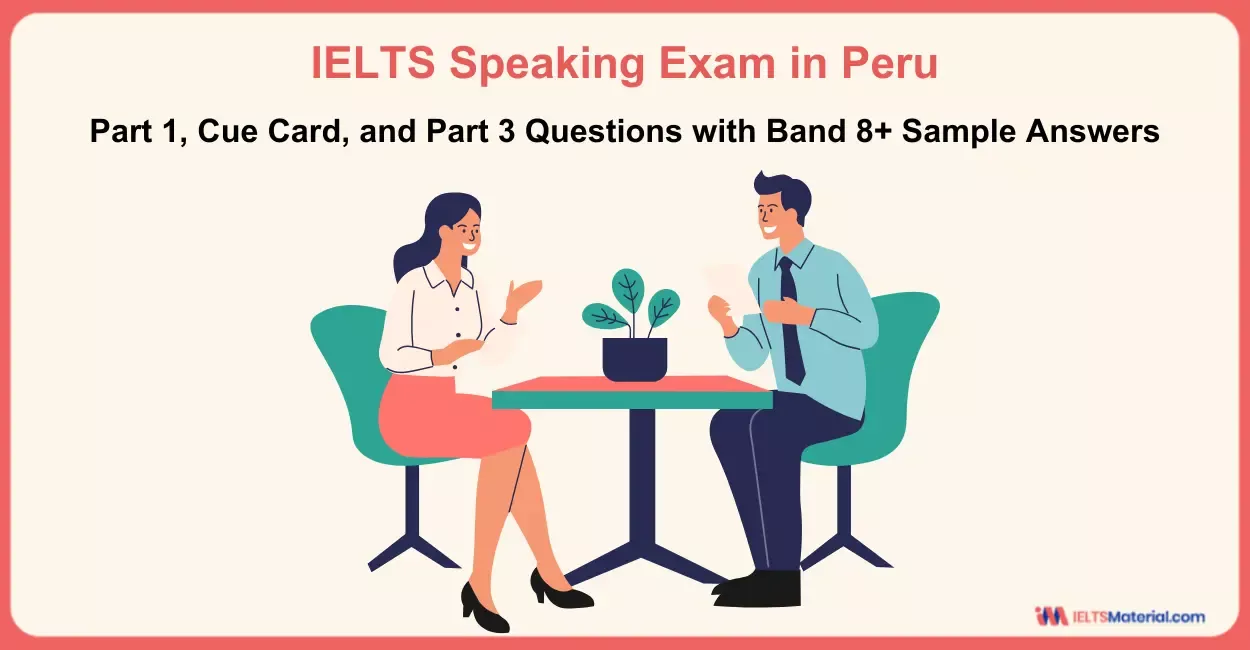IELTS Accommodation Vocabulary: Useful Phrases, Idioms & Questions in IELTS Speaking
9 min read
Updated On
-
Copy link
Boost your IELTS Speaking score with this guide on IELTS Accommodation Vocabulary. Learn essential phrases, idioms, and sample questions to confidently talk about housing, living situations, and home preferences in all three parts of the speaking test.
Table of Contents
- IELTS Accommodation Vocabulary: Useful Collocations in IELTS Speaking
- Common Phrases & Idioms for IELTS Speaking Topic: Accommodation
- Speaking Questions Where You Can Use IELTS Accommodation Vocabulary
- Expert Tips to Learn and Use IELTS Accommodation Vocabulary
- Why Does IELTS Accommodation Vocabulary Matter?

Limited-Time Offer : Access a FREE 10-Day IELTS Study Plan!
Since a house is one of the three basic needs of human beings, it is also one of the most popular topics for IELTS Speaking. As a result, learning IELTS accommodation vocabulary is of utmost importance for every test aspirant. Whether you are talking about where you live now and where you would like to live in the future in Part 1 and IELTS Speaking Part 2, respectively, or discussing broader housing trends in Part 3, you need to be familiar with the terms and phrases related to accommodation to sound confident and natural.
In this blog, we will explore the lists of useful collocations, common idioms and phrases, model questions, and tips to learn IELTS accommodation vocabulary efficiently. Use this to aim for a Band 8 or Band 9 in your IELTS Speaking.
IELTS Accommodation Vocabulary: Useful Collocations in IELTS Speaking
Accommodation collocations are commonly used word pairings or groupings that native speakers naturally use when talking about housing or living arrangements. So, learning what is collocation for IELTS and accommodation collocations can greatly improve your IELTS band score.
Below is a curated list of the top 20 important collocations for IELTS related to accommodation and some topic-specific terms that can improve your performance in the IELTS Speaking test.
|
Collocations |
Meaning |
Example Sentence |
|---|---|---|
|
Detached house |
a house not joined to another house |
I grew up in a detached house with a large front yard. |
|
Studio apartment |
a small flat with a single main room |
I rented a studio apartment while studying abroad. |
|
Tenancy agreement |
legal rental contract between landlord and tenant |
We signed a tenancy agreement for 12 months. |
|
Shared flat |
an apartment shared by two or more people |
I live in a shared flat with two university friends. |
|
Bills included |
utility costs included in rent |
It’s a bit expensive, but all bills are included, which is convenient. |
|
Affordable housing |
housing that is reasonably priced |
The government needs to invest more in affordable housing for young professionals. |
|
Move in |
start living in a new house |
We’re planning to move in next week after the renovation. |
|
Landlord/Landlady |
the owner who rents out the property |
My landlord is quite flexible and allows pets. |
|
Cozy |
comfortable and warm |
My room is small but really cozy and quiet. |
|
Run-down |
in poor condition |
Some of the buildings in the old town are quite run-down. |
|
Spacious |
having a lot of space |
The new apartment is spacious and gets plenty of sunlight. |
|
Commute |
travel between home and workplace/school |
I chose this area because the commute to my office is only 20 minutes. |
|
City centre |
the main area of a city |
I enjoy living close to the city centre where everything is accessible. |
|
Furnished apartment |
a home with all essential furniture |
It’s easier to rent a furnished apartment when you move to a new city. |
|
Suburbs |
residential areas outside the city |
Many families prefer living in the suburbs due to cleaner air and larger homes. |
|
Deposit |
initial payment made when renting |
I had to put down a two-month deposit to secure the apartment. |
|
Real estate agent |
a person who helps people rent or buy property |
We hired a real estate agent to help with house-hunting. |
|
Mortgage |
a loan to buy a house |
Getting a mortgage is a big commitment for most people. |
|
Lease renewal |
extending the rental contract |
My lease renewal is coming up next month. |
|
Maintenance charges |
fees for upkeep of a property |
Our building has monthly maintenance charges for cleaning and repairs. |
Wish to learn IELTS accommodation vocabulary and impress your examiner?
Book a seat for our FREE IELTS webinars!
Common Phrases & Idioms for IELTS Speaking Topic: Accommodation
Using idiomatic language in the IELTS Speaking test not only helps convey meaning naturally but also impresses examiners when used correctly and in context.
Here is a table of accommodation-related useful idioms for IELTS Speaking to score band 8.0+, with their meanings and example sentences.
|
Idiom / Phrase |
Meaning |
Example Sentence |
|---|---|---|
|
Home sweet home |
feeling comfortable and happy at home |
After my long trip, it felt great to be back—home sweet home! |
|
Get on the property ladder |
buy your first home and enter the housing market |
In my country, it’s hard for young people to get on the property ladder. |
|
Live out of a suitcase |
to travel frequently without a permanent home |
I’ve been living out of a suitcase since I started my job abroad. |
|
Throw money down the drain |
waste money unnecessarily |
Paying such high rent for a small room feels like throwing money down the drain. |
|
Hit the roof |
to become very angry |
My landlord hit the roof when I told him I was moving out early. |
|
Couch-surfing |
temporarily staying at friends’ homes |
I had to do some couch-surfing before I found a permanent place. |
|
A roof over your head |
a place to live |
Even though the apartment is small, at least I have a roof over my head. |
|
Bring the house down |
to cause excitement or applause |
The decorations at the housewarming party really brought the house down! |
|
A house of cards |
a structure or plan that’s unstable |
Their business was a house of cards—it collapsed in less than a year. |
|
Home is where the heart is |
you feel happiest at home |
I could live anywhere, but home is where the heart is. |
|
To live on campus |
to live on the university or college grounds |
I prefer living on campus because I could have the chance to make a lot of new friends there. |
|
Mod cons |
technology at home that makes jobs easier such as a washing machine, dishwasher |
The house is equipped with mod cons, which can make people’s lives more comfortable. |
|
To pay rent in advance |
weekly or monthly rent paid at the beginning of the week or month |
Generally, rented accommodation requires that people who hire a house need to pay rent in advance. |
|
Permanent address |
a fixed address |
I need you to provide me with a permanent address, so I could make contact with you when is needed. |
Learn how to use the IELTS accommodation vocabulary effectively from experts!
Speaking Questions Where You Can Use IELTS Accommodation Vocabulary
Now, it is time to find out how the IELTS accommodation vocabulary can be used to answer the questions in different parts of the IELTS Speaking test. Let’s get started!
IELTS Speaking Part 1
In IELTS Speaking Part 1, you’ll answer questions about yourself and your everyday life. This section is designed to help you get comfortable and ease into the speaking exam.
1 Do you live in a house or an apartment?
At the moment, I am living in my parent’s house, but in future, I’ll be moving to University, and live on campus in a double room.
2 What kind of accommodation do most people live in your city?
It depends on where they live. For instance, people who live in rural areas usually live in houses while those who inhabit in urban areas would stay in apartments because there is not enough place for building houses.
Here is a helpful interview video that provides an overview of the IELTS Speaking Part 1:
IELTS Speaking Part 2
In IELTS Speaking Part 2, you will be given a topic to speak about for 1-2 minutes after a minute of preparation. This part tests your ability to organize your thoughts and speak at length on a given subject.
| Describe a house or an apartment that you would like to live in.
You should say:
|
Sample Answer
Since I was a young boy, I have always dreamed of my future home. Today I would like to share with you about the ideal place that I would love to live in. It seems to me that the urban environment is perfectly suitable for my personality and my needs, and living in an apartment block in a metropolitan is the best choice for me.
Owning my own home means that I could do whatever I like, I have constantly wanted to make my dreamed apartment come true as soon as possible. Over there I would live with my future family which would consist of my two children, my wife and me. The apartment will be in a high floor such as the 15th or above, and of course, my place will have to be spacious, which could be about 200 square meters that means my kids could have enough space to play. There might be a living room, a kitchen, three bedrooms and one balcony. My ideal apartment should be equipped with mod cons, so when it comes to cleaning the house, we will find it easier.
Also, I would put tables and chairs out in my balcony so I could sit in, have a cup of tea with my wife and experience the city’s view. This I believe will be a memorable memory for my beloved family.
IELTS Speaking Part 3
In IELTS Speaking Part 3, you’ll engage in a discussion with the examiner, exploring more abstract and complex topics related to Part 2. This section assesses your ability to express and justify opinions, analyze issues, and discuss ideas in depth.
1 Is it better to own your own home or to rent?
I would go for rented accommodation because of its potential advantages. The first benefit is that people who rent a house will not need to take out a mortgage and just pay rent in advance, which normally costs them a small amount of money. Another benefit is this house will not be their permanent address, which means they can move to anywhere they like.
2 What are some of the pleasures involved in making a home for yourself?
The important thing is they can enjoy finding their own home, then another thing is owning their own home, which means that they could do whatever they like. For example, by doing up their property, they can organize and decorate their house in a way that suits their expectation.
Expert Tips to Learn and Use IELTS Accommodation Vocabulary
Learning IELTS vocabulary effectively takes more than just reading a list. Here are some smart strategies to help you learn the IELTS accommodation vocabulary:
- Use Contextual Learning: Practice using the vocabulary in answers to real IELTS questions. This helps you remember not just the word, but how to use it correctly.
- Build Topic Word Banks: Create a separate section in your notes for topic-based vocabulary, like accommodation, travel, environment, etc. Add phrases, collocations, and idioms.
- Speak Daily: Try to speak for 1–2 minutes daily on topics like ‘Describe your ideal house IELTS cue card’ or ‘Talk about a home you'd love to own’, using the words you have learned.
- Record and Review: Record yourself answering sample questions and review whether you have used enough high-ranking IELTS vocabulary and natural expressions.
- Listen and Read Real Sources: Watch real estate tours on YouTube or read apartment listings on rental websites. You will pick up common phrases, like ‘move-in ready’, ‘newly renovated’, or ‘close to public transport’.
Grab Our 4.5+ Rated Speaking Course Now to Level Up!
Why Does IELTS Accommodation Vocabulary Matter?
In the IELTS Speaking test, examiners often ask questions about your home or the type of place you would like to live in. So, besides knowing about what IELTS examiners look for in the speaking test, you need to learn how to provide it.
The Lexical Resource criterion in the IELTS Speaking test evaluates how accurately and flexibly you use vocabulary. If you repeat basic words like ‘house’, ‘room’, or ‘nice’, it can limit your score. Therefore, by using topic-specific vocabulary, natural phrases, and idiomatic expressions, you show range, fluency, and understanding of the context.
To conclude, improving your vocabulary for the IELTS Speaking test, especially on common topics like accommodation, can significantly enhance your performance. By mastering these collocations and phrases, you will be better prepared to impress the examiner
Also, make sure to practice these expressions in IELTS Speaking practice tests, and review this vocabulary regularly so it becomes part of your active usage. With preparation and confidence, you’ll be well on your way to scoring Band 8 or higher IELTS band score.
Useful Links:
- Linking Words for IELTS Speaking Section
- Top 11 IELTS Vocabulary Books
- IELTS Sport Vocabulary: Useful Phrases & Expressions in IELTS Speaking
- English Pronunciation in Use (IELTS-based) (Intermediate Edition) by Mark Hancock
- IELTS Work Vocabulary: Useful Phrases and Expressions in IELTS Speaking
- IELTS Pronunciation Guide 2025
- 75+ Common English Words Used in IELTS Speaking Test
- Ough Words With Pronunciation

Start Preparing for IELTS: Get Your 10-Day Study Plan Today!
Explore other Speaking Topics



Recent Articles

Nitika Gupt

Nehasri Ravishenbagam

Nehasri Ravishenbagam






Post your Comments
1 Comment